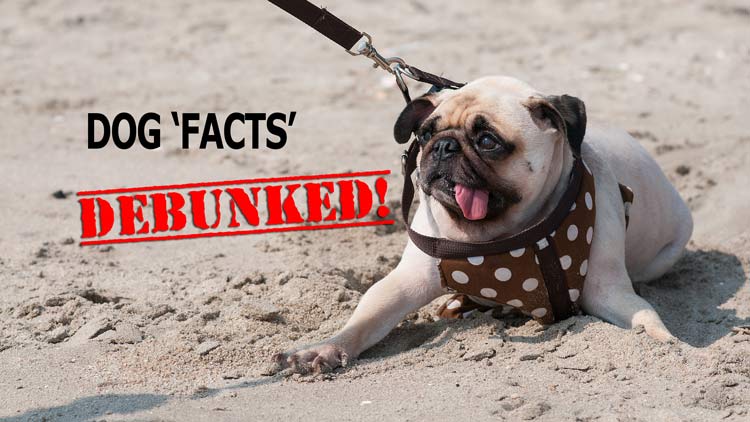Dogs have been the most steadfast human companions for centuries, and like any long tradition, we've learned many valuable facts about our four-legged friends. Experience counts, but some of the ‘facts' about dogs that we take for granted are, at best, unproven. In the worst cases, some doggie myths can be dangerous nonsense! Dogs are amazing animals, so it pays to research and see which of these facts are true and which are just old tales.
We bet you've heard the first one on our list, but did you know the truth behind it?
A Dog’s Wet Nose is a Certain Sign of Health
I don’t know about you, but when my pup isn’t feeling good I don’t feel good either. I’m sick with worry that something else is going on even though she’s likely just dealing with a minor doggy bug that’ll soon pass. One of the signs that I used to look for to find out if she was healthy or getting sick was her nose. Many people think that if their dog’s nose is wet then their dog is healthy and if the nose is dry then the dog is sick. However, that isn’t true.
Vets tell us that the level of moisture from a dog’s nose really doesn’t mean a lot. A healthy dog can have a dry nose which can be caused by age, hanging out in the sun, or being in the wind too much. It’s similar to when a human’s skin gets dry minus the licking, of course.
Dogs are always licking their noses so it’s usually at least slightly damp. They also are constantly sniffing everything (at least my dog is) and some people believe a damp nose helps enhance their sniffing capabilities. That seems pretty far-fetched, since the important olfactory sensing happens inside the nose, which always has some moisture. The outside of the nose doesn't really affect the sense of smell that way.
A dog's body language and behavior is usually a better way to gauge warning signs of illness or discomfort. If you think something is up with your dog, regardless of whether his nose is damp or not, it’s always best to check with your vet. They should be able to understand your dog’s symptoms better than a dubious dry-nose test!
Next, we'll look at how certain procedures really affect our dogs, versus the rumors you may have heard peddled as facts…












